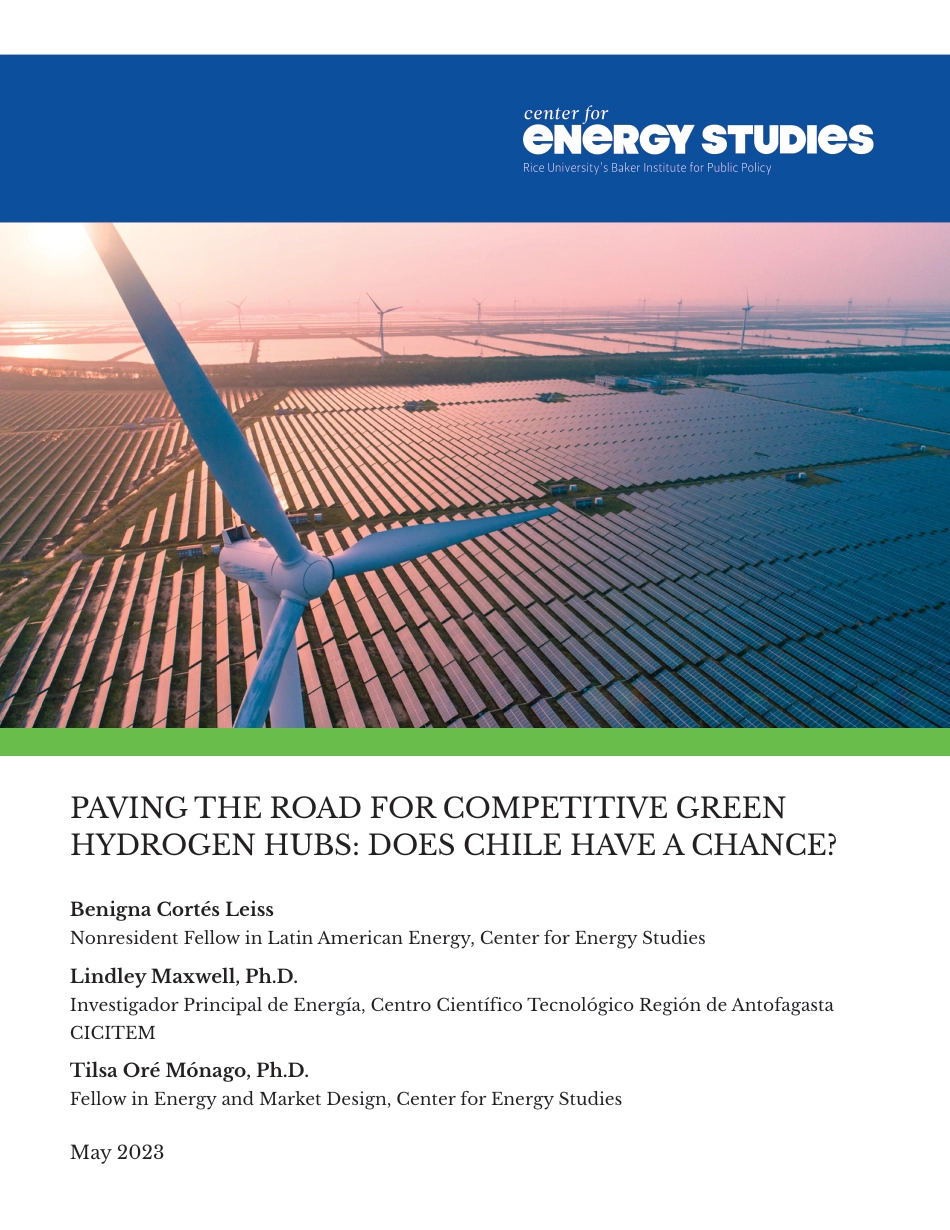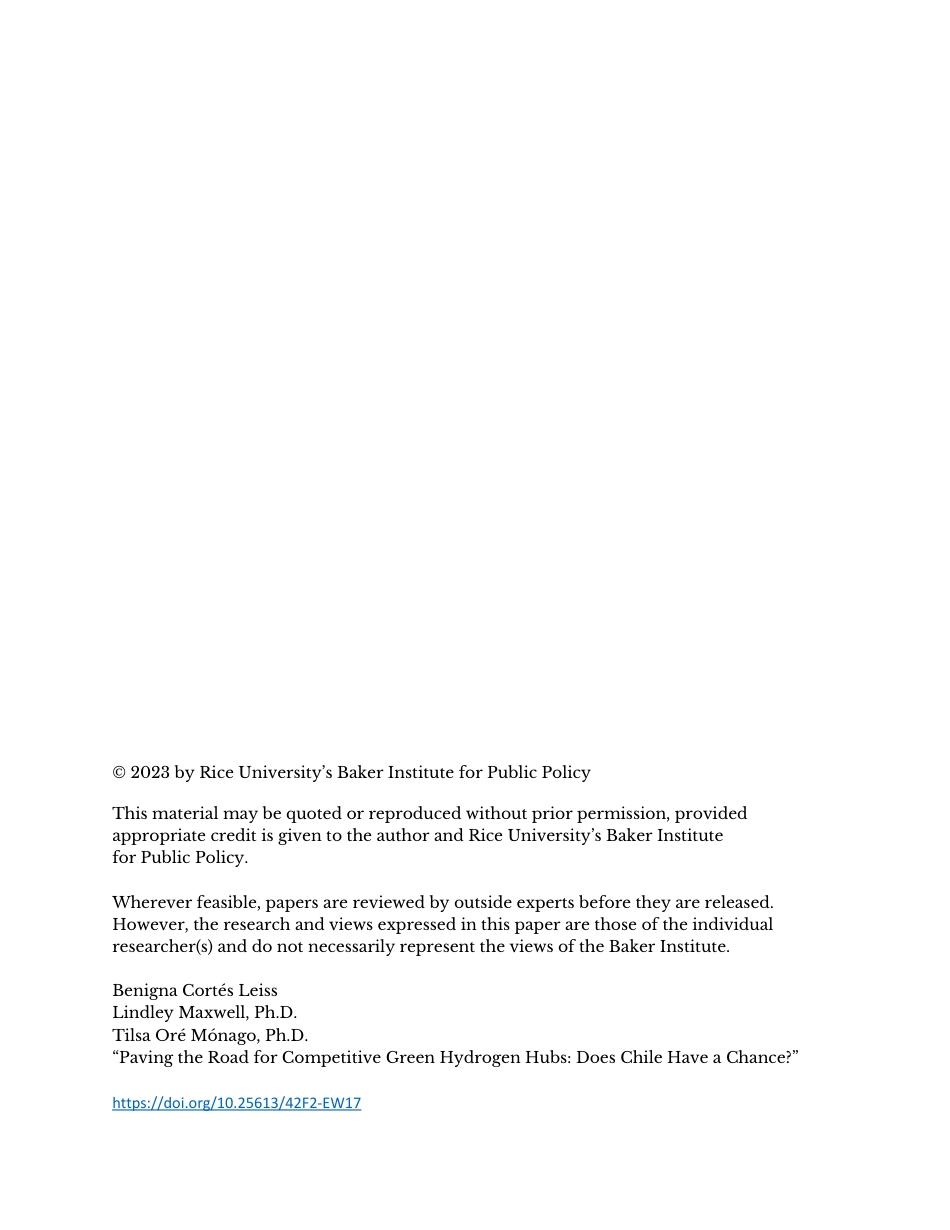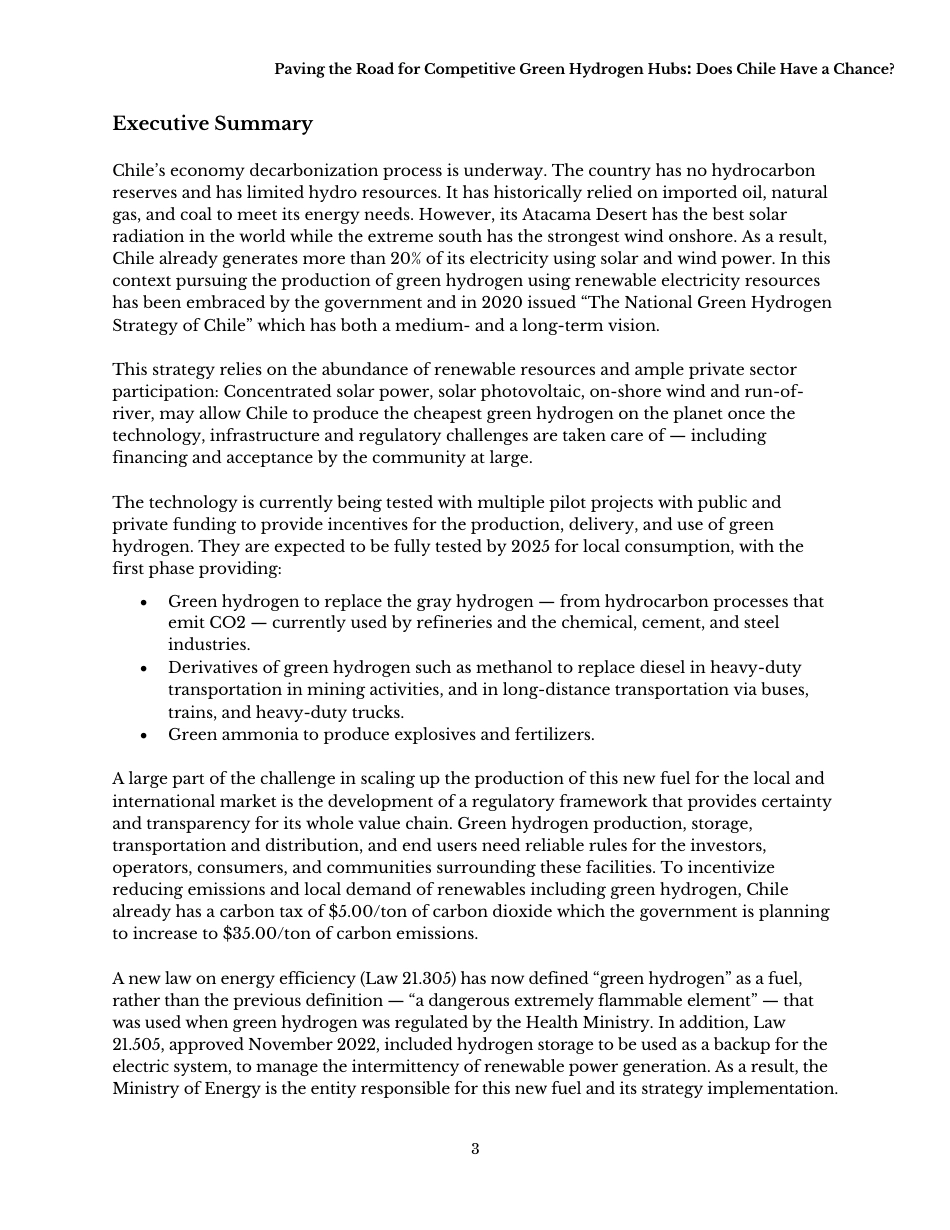PAVING THE ROAD FOR COMPETITIVE GREEN HYDROGEN HUBS: DOES CHILE HAVE A CHANCE?Benigna Cortés LeissNonresident Fellow in Latin American Energy, Center for Energy StudiesLindley Maxwell, Ph.D.Investigador Principal de Energía, Centro Científico Tecnológico Región de Antofagasta CICITEMTilsa Oré Mónago, Ph.D.Fellow in Energy and Market Design, Center for Energy StudiesMay 2023 © 2023 by Rice University’s Baker Institute for Public Policy This material may be quoted or reproduced without prior permission, provided appropriate credit is given to the author and Rice University’s Baker Institute for Public Policy. Wherever feasible, papers are reviewed by outside experts before they are released. However, the research and views expressed in this paper are those of the individual researcher(s) and do not necessarily represent the views of the Baker Institute. Benigna Cortés Leiss Lindley Maxwell, Ph.D. Tilsa Oré Mónago, Ph.D. “Paving the Road for Competitive Green Hydrogen Hubs: Does Chile Have a Chance?” https://doi.org/10.25613/42F2-EW17 Paving the Road for Competitive Green Hydrogen Hubs: Does Chile Have a Chance? 3 Executive Summary Chile’s economy decarbonization process is underway. The country has no hydrocarbon reserves and has limited hydro resources. It has historically relied on imported oil, natural gas, and coal to meet its energy needs. However, its Atacama Desert has the best solar radiation in the world while the extreme south has the strongest wind onshore. As a result, Chile already generates more than 20% of its electricity using solar and wind power. In this context pursuing the production of green hydrogen using renewable electricity resources has been embraced by the government and in...



